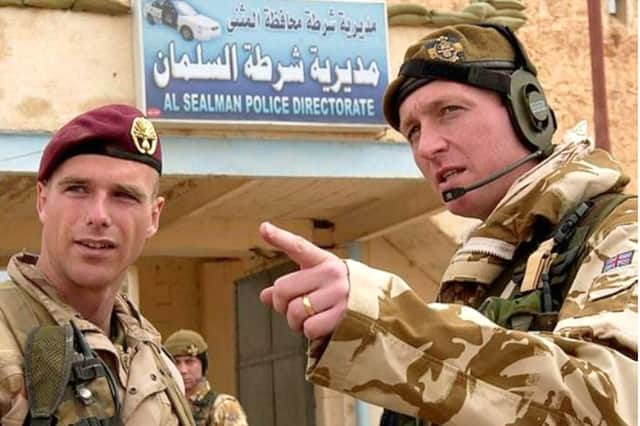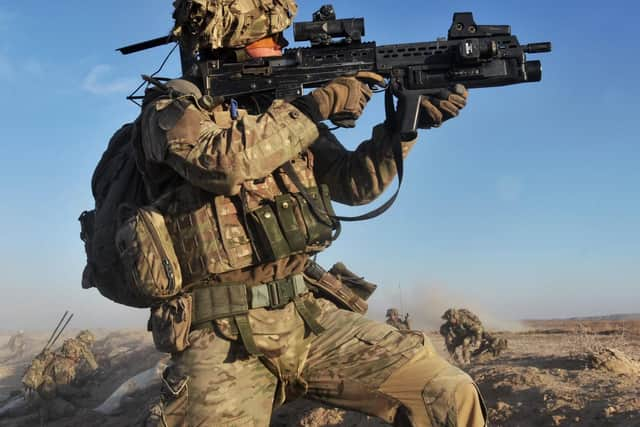Ministry of Defence ‘should train veterans to become counsellors’ to help suicidal troops with PTSD, top officer says


Retired Lieutenant Colonel Chris Parker supports thousands of veterans across Hampshire and the south-east region as chairman of the Princess of Wales’s Royal Regiment Association.
The former top officer, who is from Cowplain, is writing to the Ministry of Defence (MoD), calling for funding to train ex-servicemen and women to become counsellors, as well as urging officials to fight the stigma that all veterans are ‘mad, bad, or sad’.
Advertisement
Hide AdAdvertisement
Hide AdLt Col Parker said servicemen could identify with the issues facing those leaving active duty, while providing opportunities for veterans would help address challenges they face in finding employment.


He said: ‘If we can fund a small organisation of military and ex-military men and women who are trained counsellors then we will manage a lot of the problems.
‘They are perfect people for it.’
Lt Col Parker, ex chief of staff of the famed Desert Rats brigade in the Middle East, said post-traumatic stress disorder (PTSD) was among a ‘number of issues’ veterans faced.
But he warned PTSD cases were often mislabelled, and ex-military personnel often suffered from ‘adjustment reaction’, in which they struggled to acclimatise to civilian life.
Advertisement
Hide AdAdvertisement
Hide Ad‘It is not an epidemic,’ he said. ‘We don’t find it to be prevalent among all veterans but like blue-light services a lot of people can be in jobs where there is a higher risk of being affected later and we are all in that group.
‘We are shrouded and masked by a different problem which is an adjustment which most find a problem.’
With fewer public venues for veterans to visit, like Royal British Legion clubs, Lt Col Parker said veterans now turned to social media to keep in touch with military colleagues.
Organisations like the regimental association are effectively the ‘gap’ between the veteran and the likes of the NHS, he said.
Advertisement
Hide AdAdvertisement
Hide AdLt Col Parker believed lives had been saved because servicemen had turned to the association for help.
Recalling how he helped one former soldier, he said: ‘He was saying he was okay and I realised he was shaking a bit. I said “Are you sure” and he told me he had thoughts of taking his own life.
‘That was the first point we were able to get access and give care.
‘That doesn’t mean that person is a bad person, he just needed that extra encouragement and I don’t yet believe a civilian counsellor, having been through the whole thing, can fully understand the situation we are in.’
Advertisement
Hide AdAdvertisement
Hide AdThe experienced Army veteran said he had previously received counselling for PTSD, which he described as ‘exceptional’.
But he feared it was taking too long for appointments to be made when people plucked up the courage to reach out.
He said: ‘I tested it myself recently and asked one agency for some help. I was given a one-hour appointment in six weeks’ time.
‘In that time someone may have self-harmed or worse, or decided to leave it.
‘To be told you have got an appointment in six to eight weeks is not acceptable.
For support, see the regimental association’s website at pwrrtigers.com/happy-tiger.html